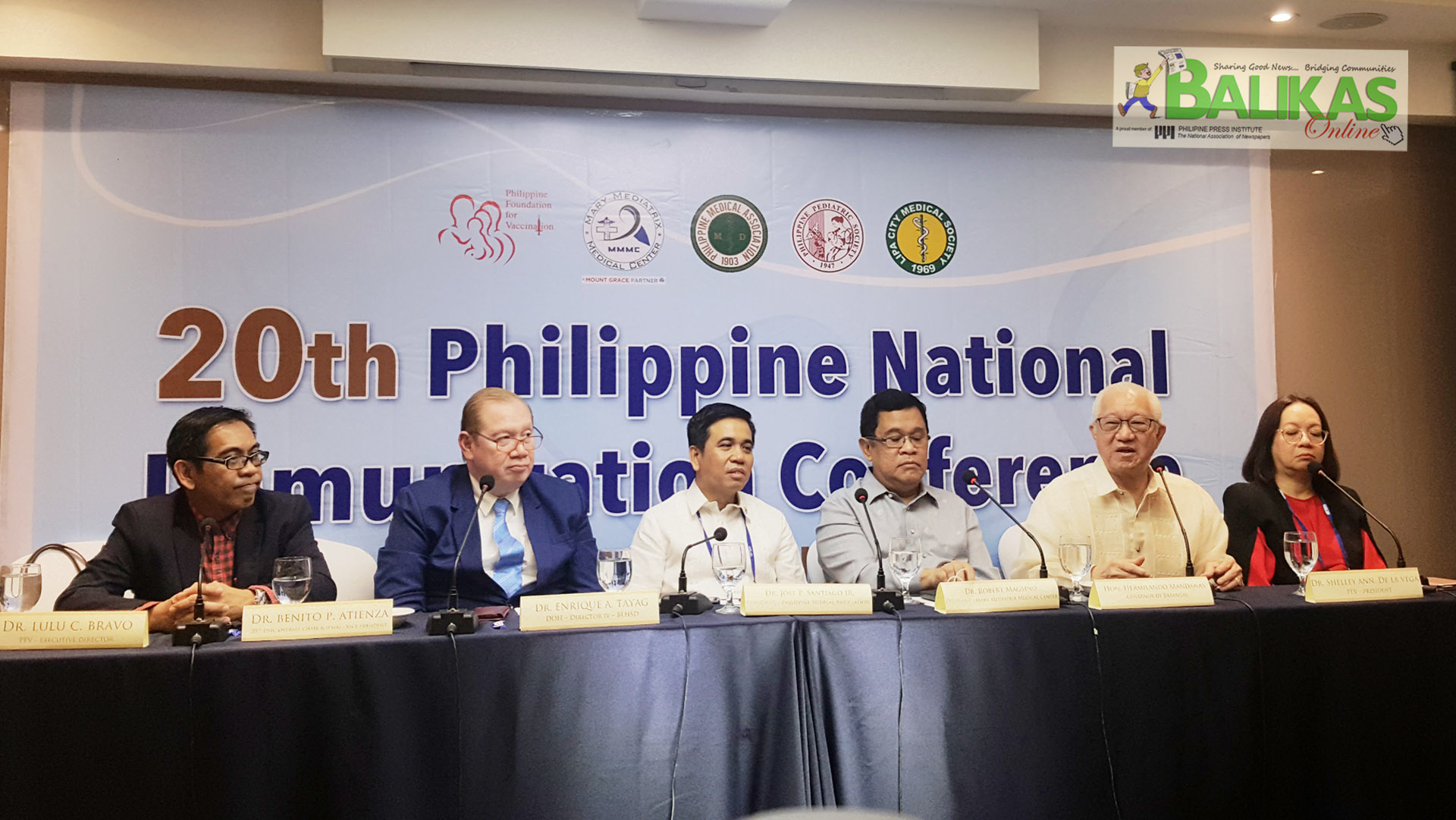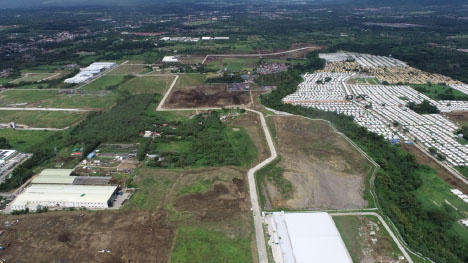THE World Health Organization (WHO) cited vaccine hesitancy as one of the top ten threats to global health in 2019, because it can reverse the progress made in the fight against vaccine-preventable diseases.
In the Philippines, it is a harrowing reality that 21stcentury Filipino children are again facing the threat of polio, which crippled Apolinario Mabini way back in the colonial era. The Philippines has been certified polio-free through immunization since 20002 but with the recent low vaccination coverage, the threat of polio is resurfacing.
Recent news about local outbreaks of vaccine-preventable diseases is alerting the population to the phenomenon of “vaccine hesitancy” and its debilitating and life-threatening consequences. With parents and guardians as household leaders, they play a crucial role in making informed choices for their children’s health which includes ensuring that their children are up-to-date with their immunization schedule.
For poliomyelitis in particular, the Centers for Disease Control and Prevention (CDC) recommends that children get four doses of polio vaccine. They should get one dose at each of the following ages: 2 months old, 4 months old, 6 through 18 months old, and 4 through 6 years old.
In a press conference on immunization hosted by the Foreign Correspondents Association of the Philippines (FOCAP) last September 25, World Health Organization (WHO) Country Representative in the Philippines Dr. Rabindra Abeyasinghe said 95% of the 11 million children (0-5 years old) in the Philippines should be vaccinated with oral polio irrespective of their vaccination status in order to prevent the resurgence of polio type 2 in the country.
However, the current challenge is the growing number of parents delaying vaccinations or are deciding not to vaccinate their children altogether. This increases the risk of contracting vaccine-preventable diseases and disrupting herd immunity. But what drives parents to delay or even outright refuse vaccination despite the availability of vaccination services, which are often administered free by the government?
High cost of vaccine hesitancy
Vaccine hesitancy is a complex phenomenon driven by what people think and feel,influenced by factors including social, practical, historical, and political conditions that cause individuals and communities to be apprehensive about vaccines in varying degrees. There are people who accept vaccines but have concerns about them, there are those who decline certain vaccines but accept others, and some who totally refuse all types of vaccines.
According to the Department of Health (DOH), the WHO conducted a study last October 2018 in selected areas in Metro Manila to identify why parents and caregivers are not getting their family members immunized. The top reasons cited are fear due to recent controversial events and lack of time among households.
The host of factors fueling vaccine hesitancy can be summarized with three C’s: Confidence, Convenience, and Complacency. In the Philippines, the recent controversy drove certain members of the population to refuse vaccines for their newborns and children, including those that are long-proven effective. Untoward incidences, conspiracy theories, and disinformation propaganda—so easily shared and accessed on the internet—undermined the trust in vaccines, in health professionals, and even in pharmaceutical companies that manufacture them.
The issue of convenience is rooted inthe quality of delivery and accessibility of the vaccines. This can run anywhere from availability of the vaccines at the time needed; mode of vaccine administration (oral, nasal, injection); apprehensions surrounding cost and quality of service; and ease of getting to the site where the vaccination will take place.
The cost of vaccine hesitancy is disturbingly high. It leads to outbreaks as a result of poor immunization coverage. Just from January to February this year alone, some 4,302 measles cases have been reported, with 70 resulting in deaths. The most-affected age groups are children from 1 to 4 years comprising 34%, followed by infants less than 9 months old who represent 27% of the cases.
In some cases, the success of a national immunization program can trigger complacency because some people may feel that the risks are low and vaccines are not that needed anymore. In addition, the absence of reported cases in the news can lead to lack of knowledge about the threat of the disease.Vaccine complacency can happen among parents who fail to get their children immunized at the appropriate age.
Tackling the burden of vaccine hesitancy
To support the WHO, the Philippine Foundation for Vaccination (PFV) in partnership with the Mary Mediatrix Medical Center, Philippine Medical Association, Philippine Pediatric Society – Southern Tagalog Chapter, Lipa City Medical Society, and the public and private health sectors, is holding the 20th Philippine National Immunization Conference (PNIC) and World Pneumonia Day Celebration to address the difficulties on vaccine hesitancy and ultimately regain confidence in immunization across all areas in the country.
The 20th PNIC, themed “Addressing Vaccine Hesitancy and Increasing Vaccine Confidence,” is participated by hundreds of physicians/ clinicians, nurses, midwives, and other health care professionals and staff from both public and private health sectors in the Philippines.
With a goal so far-reaching, and decision-making regarding vaccinations so complex, one of the ways forward being urged by medical experts from the 20th PNIC is to encourage collaborations and interventions on a multi-sectoral scale.
The experts emphasize the need to better and directly engage communities, equip healthcare professionals working with these communities, and educate parents to make informed choices for themselves and their children to be able to strengthen the resilience of the immunization system.
From November 11 to 12, 2019 at Lima Park Hotel in Batangas, the 20th PNIC aims to gather stakeholders to draw out lessons from the Philippine experience of vaccine hesitancy and best practices in fighting vaccine-preventable resurgent diseases.
A press conference follows with the participation of officials and representatives from the Department of Health (DOH), Philippine Foundation for Vaccination (PFV), Philippine Medical Association (PMA), Philippine Pediatric Society (PPS), Pediatric Infectious Disease Society of the Philippines (PIDSP), and Batangas Provincial Health Office.
To generate insights to grow vaccination confidence and coverage, the conference tackles how the country’s immunization system can be improved, the importance of accurate information to address vaccine hesitancy, the value of immunization, and the importance of health literacy among parents and the youth, among other topics.
Immunization saves lives
The long-proven science is that vaccines save lives and reduce the burden of preventable diseases, especially among children worldwide. It is considered one of the most cost-effective ways of preventing certain diseases around the world, avoiding as many as 2-3 million deaths a year, plus 1.5 million more if vaccine coverage is improved worldwide, as reported by WHO.
Vaccination is a life-course approach to health– it reduces the burden of the disease and the measurable impact of health problems on the quality of life, at any age. Vaccines are crucial in paving the way for a community to be protected from diseases. According to the United Nations’ Children’s Fund (UNICEF), vaccines can save 2 to 3 million lives each year. Vaccines are known to be among the greatest medical interventions in history and are second to clean water in their capacity to reduce infectious diseases. Through vaccination, diseases such as smallpox have been eliminated. Vaccines go through multiple rounds of quality assurance tests to make sure that the vaccine an individual receives is safe and effective.|-Balikas News Network

















